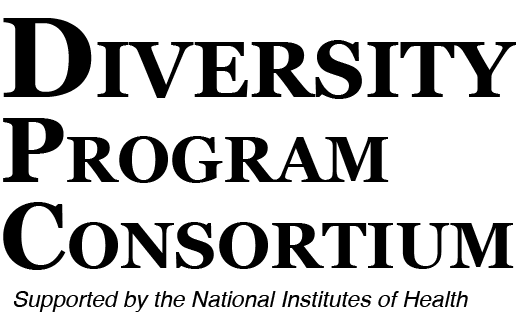



DPC Hallmark STU-11
By Krystle Cobian
February 2020
“Undergraduate students are now more involved in faculty mentored research experiences. Students are actually doing science, not merely enduring lectures about science or studying their textbooks” (Chopin, 2002, p. 3)
Conducting research in a biomedical lab can expose an undergraduate student to interactions with undergraduate peers, graduate students, postdoctoral scholars, and faculty who may serve as mentors. Thus, while much of the educational research tends to focus on mentorship relationships or participation in biomedical research, mentoring relationships often occur organically through a student’s engagement in biomedical research. Participation in mentored or supervised biomedical research can support the development of research knowledge and skills (Bauer & Bennett, 2003), bring clarity to the career path (Lopatto, 2007), increase the likelihood of indicating plans to enroll in a STEM graduate program (Eagan et al., 2013), and increase the competitiveness of students for other educational and career opportunities (Carpi et al., 2017).
Apart from learning that occurs in the classroom, participation in science research leads to “doing science” (Chopin, 2002), meaning that students are able to develop critical thinking skills. In a survey of almost 15,000 individuals at various levels of science education and training, Russell, Hancock, & McCullough (2007) found that participation in undergraduate research opportunities increased students’ understanding of research, confidence in their ability to do research, and awareness of what graduate study would be like. In the longer-term, Jones, Barlow, & Villarejo (2010) found that participating in undergraduate research was positively associated with the odds of persisting to earn a bachelor’s degree in biology. These researchers determined students’ extent of research experience by counting course credits where students were enrolled in undergraduate research, and thus intentionally did not distinguish between undergraduate research experiences that were highly structured through a funded program versus other formats.
Several studies have also evaluated the impact of highly structured undergraduate research programs. Holistic approaches to research experiences that include extensive training, counseling and/or advising, mentoring, and overall support for underrepresented students lead to successful student outcomes in several programs. The UC Berkeley Biology Scholars Program has high rates of students being accepted into medical schools (MacLachlan, 2012), and the Meyerhoff Scholars program at UMBC has had remarkable success in the proportion of their scholars who matriculate to graduate school and later to faculty positions in science fields (Carter, Mandell, & Maton, 2009). A study of Research Initiative for Science Excellence (RISE) programs, funded by the National Institutes of Health, also found that students who participated in RISE programs were more likely to persist in their intentions to pursue a science career, and that the research experience component of these programs may be more influential in retaining students’ science-related research interests (Schultz et al., 2011).
Receipt of quality mentoring can also be a key outcome for a student participating in undergraduate research. Indeed, “for undergraduates in research programs, mentorship is the essence of the experience” (MacLachlan, 2012, p. 774), meaning that students can reap many benefits from the mentoring relationships cultivated through participation in research in addition to the skills they gain from “doing” research. Scholars have sought to examine how mentoring relationships within research experiences function, including various mentoring strategies and structures (Dolan & Johnson, 2010; Wilson et al., 2012). Further research is needed to understand the outcomes of various combinations of mentorship and research participation models in biomedical disciplines. For example, Estrada and colleagues (2018) found that having two semesters of research experience in a student’s junior and senior years, as well as reports of high quality mentorship, led to gains in science self-efficacy and science identity, and valuing the objectives of the scientific community.
Participation in mentored or supervised biomedical research is one of the hallmarks of success of the Diversity Program Consortium. The DPC aims to identify the impact of participation in mentored biomedical research experiences for undergraduate students. Particular focus is on the type of mentored and supervised research experiences in addition to the quantity and quality of research experiences, particularly for underrepresented and/or disadvantaged groups in biomedical disciplines. A better understanding of the short- and long-term outcomes of participation in biomedical research experiences can provide a blueprint for colleges and universities to support students with biomedical career aspirations.
References
Bauer, K. W., & Bennett, J. S. (2003). Alumni perceptions used to assess undergraduate research experience. The Journal of Higher Education, 74(2), 210-230.
Carpi, A., Ronan, D. M., Falconer, H. M., & Lents, N. H. (2017). Cultivating minority scientists: Undergraduate research increases self‐efficacy and career
ambitions for underrepresented students in STEM. Journal of Research in Science Teaching, 54(2), 169-194.
Carter, F. D., Mandell, M., & Maton, K. I. (2009). The influence of on-campus, academic year undergraduate research on STEM Ph.D. outcomes: Evidence from
the Meyerhoff Scholarship Program. Educational Evaluation and Policy Analysis, 31(4), 441-462.
Chopin, S. F. (2002). Undergraduate research experiences: The translation of science education from reading to doing. The Anatomical Record, 269(1), 3-10.
Dolan, E. L., & Johnson, D. (2010). The undergraduate–postgraduate–faculty triad: unique functions and tensions associated with undergraduate research
experiences at research universities. CBE—Life Sciences Education, 9(4), 543-553.
Eagan Jr, M. K., Hurtado, S., Chang, M. J., Garcia, G. A., Herrera, F. A., & Garibay, J. C. (2013). Making a difference in science education: the impact of
undergraduate research programs. American Educational Research Journal, 50(4), 683-713.
Estrada, M., Hernandez, P. R., & Schultz, P. W. (2018). A longitudinal study of how quality mentorship and research experience integrate underrepresented
minorities into STEM careers. CBE—Life Sciences Education, 17(1), ar9.
Jones, M. T., Barlow, A. E., & Villarejo, M. (2010). Importance of undergraduate research for minority persistence and achievement in biology. The Journal of
Higher Education, 81(1), 82-115.
Lopatto, D. (2007). Undergraduate research experiences support science career decisions and active learning. CBE—Life Sciences Education, 6(4), 297-306.
MacLachlan, A. J. (2012). Minority undergraduate programs intended to increase participation in biomedical careers. Mount Sinai Journal of Medicine: A Journal
of Translational and Personalized Medicine, 79(6), 769-781
Russell, S. H., Hancock, M. P., & McCullough, J. (2007). Benefits of undergraduate research experiences. Science, 316(5824), 548-549.
Schultz, P. W., Hernandez, P. R., Woodcock, A., Estrada, M., Chance, R. C., Aguilar, M., & Serpe, R. T. (2011). Patching the pipeline: Reducing educational
disparities in the sciences through minority training programs. Educational Evaluation and Policy Analysis, 33(1), 95-114.
Wilson, Z. S., Holmes, L., Degravelles, K., Sylvain, M. R., Batiste, L., Johnson, M., McGuire, S.Y., Pang, S., & Warner, I. M. (2012). Hierarchical mentoring: A
transformative strategy for improving diversity and retention in undergraduate STEM disciplines. Journal of Science Education and Technology, 21(1),
148-156.
Suggested citation
Cobian, K. (2020). Participation in Mentored or Supervised Biomedical Research. Literature Brief. Los Angeles, CA: Diversity Program Consortium (DPC) Coordination and Evaluation Center at UCLA. https://www.diversityprogramconsortium.org/